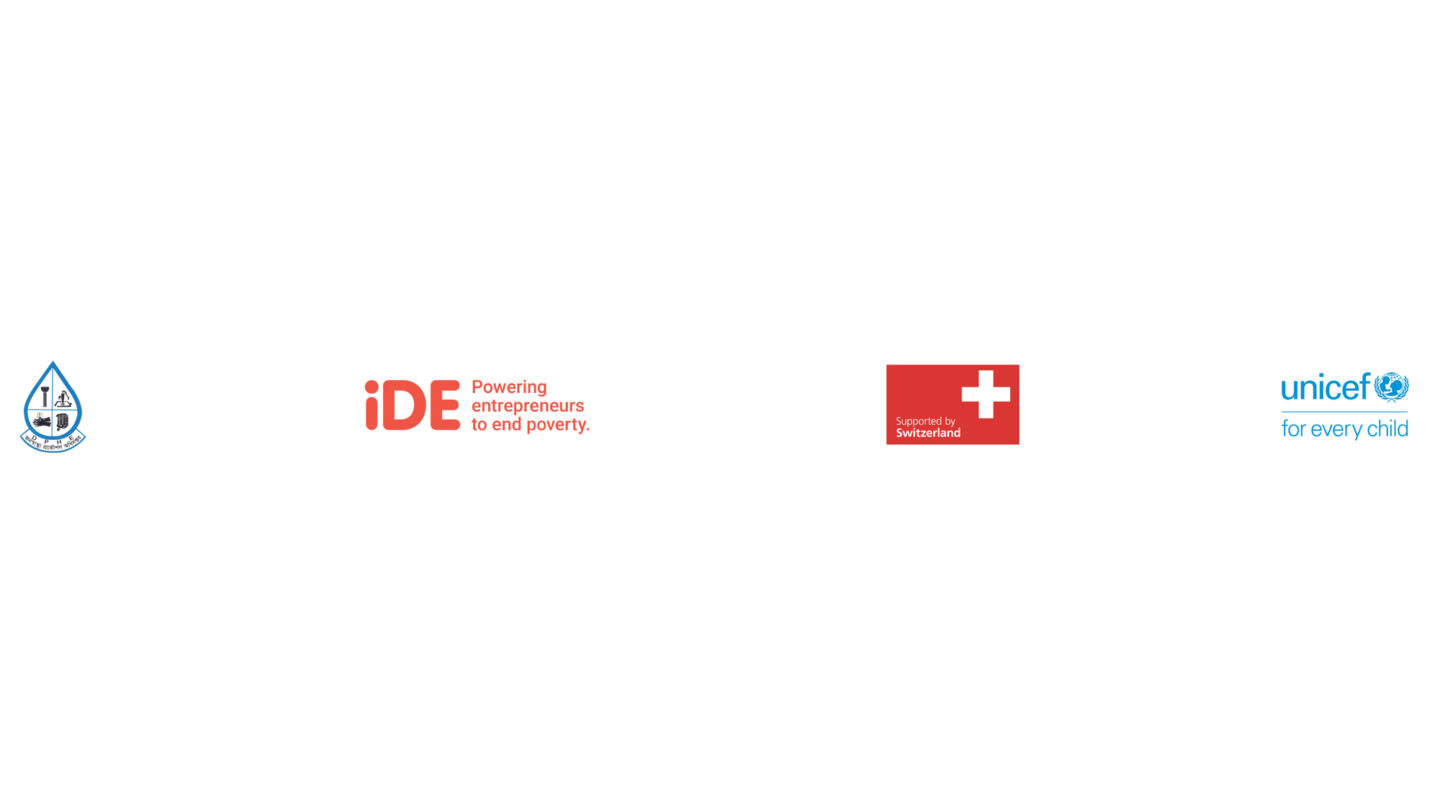Bangladeshi entrepreneurs create market for latrines
iDE’s most ambitious sanitation program to date aims to provide toilets for more than 1 million households
For 10 years, Mohammad Mubeen Mia worked tirelessly at a post office, running mail to remote corners of Kishoreganj District, in central Bangladesh. But because he didn’t earn enough to support his family, Mubeen took on a side hustle, helping local masons ply their trade. The experience gave him the confidence to start his own business and he began producing concrete toilet rings, which he sold to nonprofit organizations, implementing sanitation programs in the surrounding villages, where few families had their own latrine.
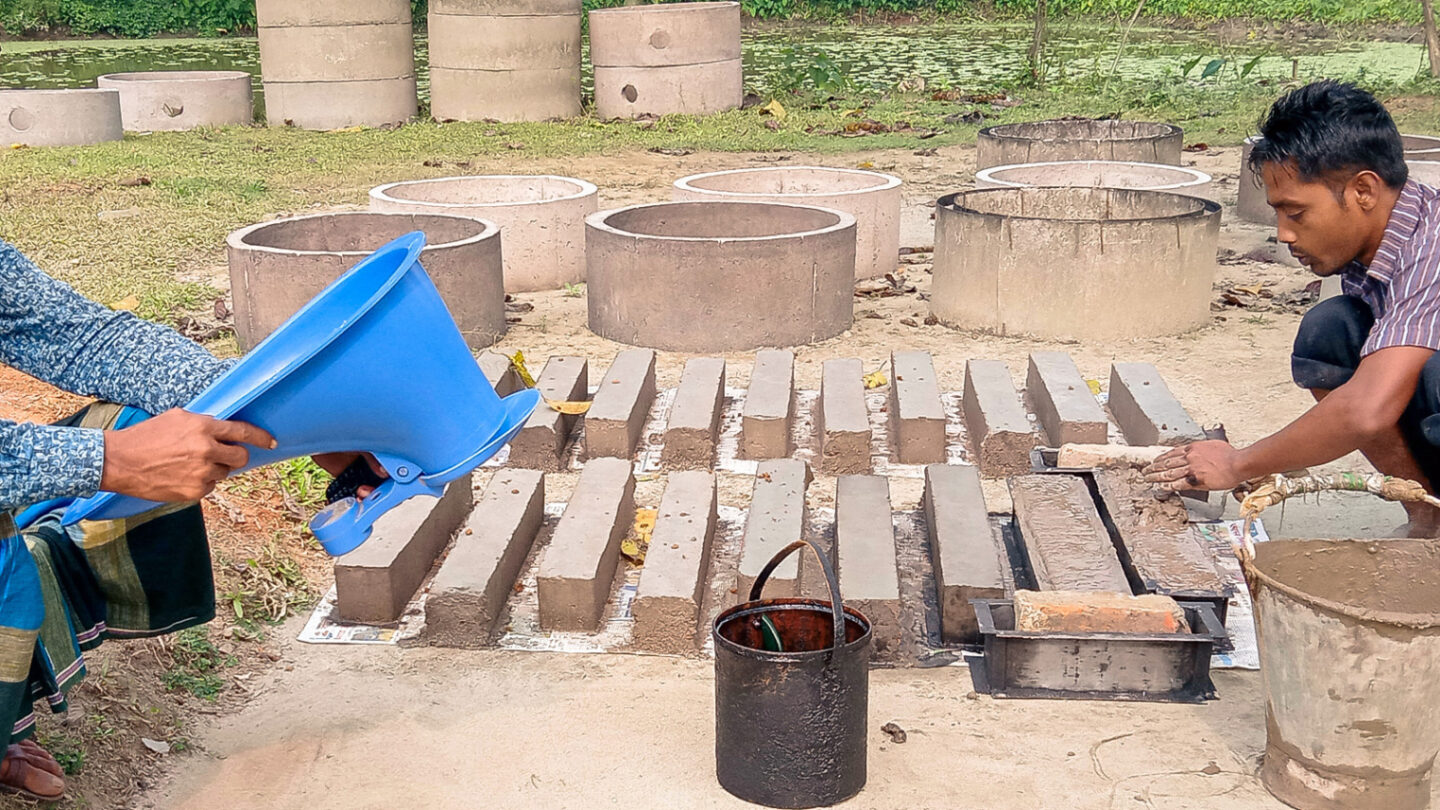
Through iDE, Mubeen, right, was provided access to quality supplies, given business training, and connected with a broader market for his products.
Then in late 2020, Mubeen became involved with iDE after he met with staff members on a routine scouting mission to identify small-scale entrepreneurs to join a program designed to radically boost sanitation coverage across Bangladesh. By taking part, Mubeen was provided access to quality supplies, given business training, and connected with a broader market for his products.
“At first, I thought iDE might purchase products from me like other NGOs,” says Mubeen, “But after participating in the training, I understood. They were here to show me how to grow my business.”
Mubeen is one of hundreds of latrine producers being powered by iDE’s Scaling Up Sanitation Marketing Systems in Bangladesh (SanMarkS II) program, iDE’s largest program to date anywhere in the world. The program is being implemented in partnership with the Government of Bangladesh and is funded by UNICEF and the Embassy of Switzerland in Bangladesh. The program aims to improve sanitation for 4.5 million people in more than 1 million households in Bangladesh by 2025. So far over 213,527 toilets have been sold under SanMarkS II and 1,563 latrine producers like Mubeen have been trained. While implementation efforts have been hampered by the pandemic and flooding, the program is on track to meet its targets.
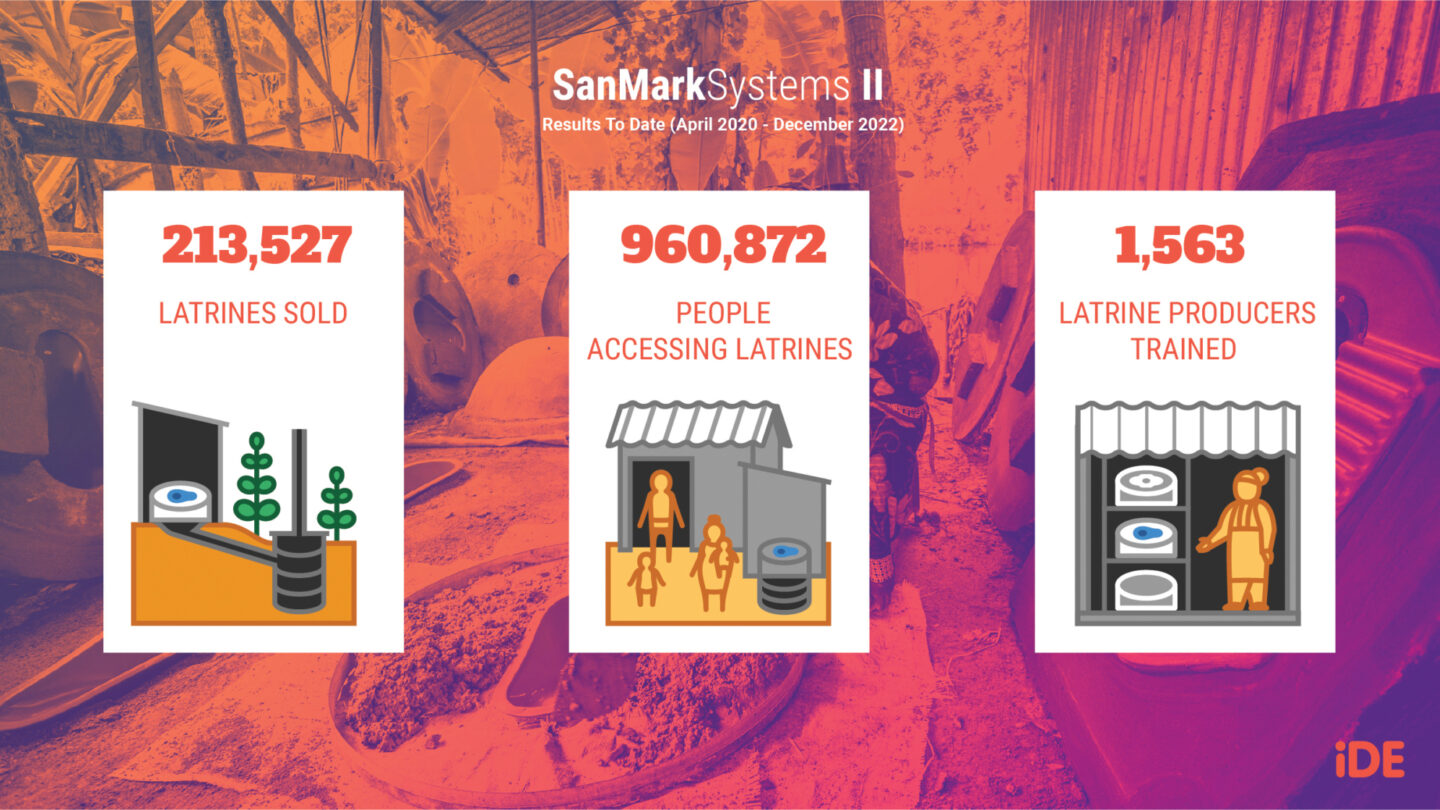
Three-pronged approach to scaling sanitation market systems
1. Use of Services: Increase access and use of improved sanitation services and hygiene behavior by poor and disadvantaged individuals and households.
2. Service Delivery: Stimulate private and public sanitation service providers to sustainably expand equitable provision of improved sanitation services to poor and disadvantaged individuals and households.
3. Enabling Environment: Accelerate and coordinate the equitable provision of improved water and sanitation services to poor and disadvantaged individuals and households through: sector development, strengthening WASH sector institutions, harnessing the required political will and generating technical and policy level stakeholder buy-in, resource mobilization and technical support.
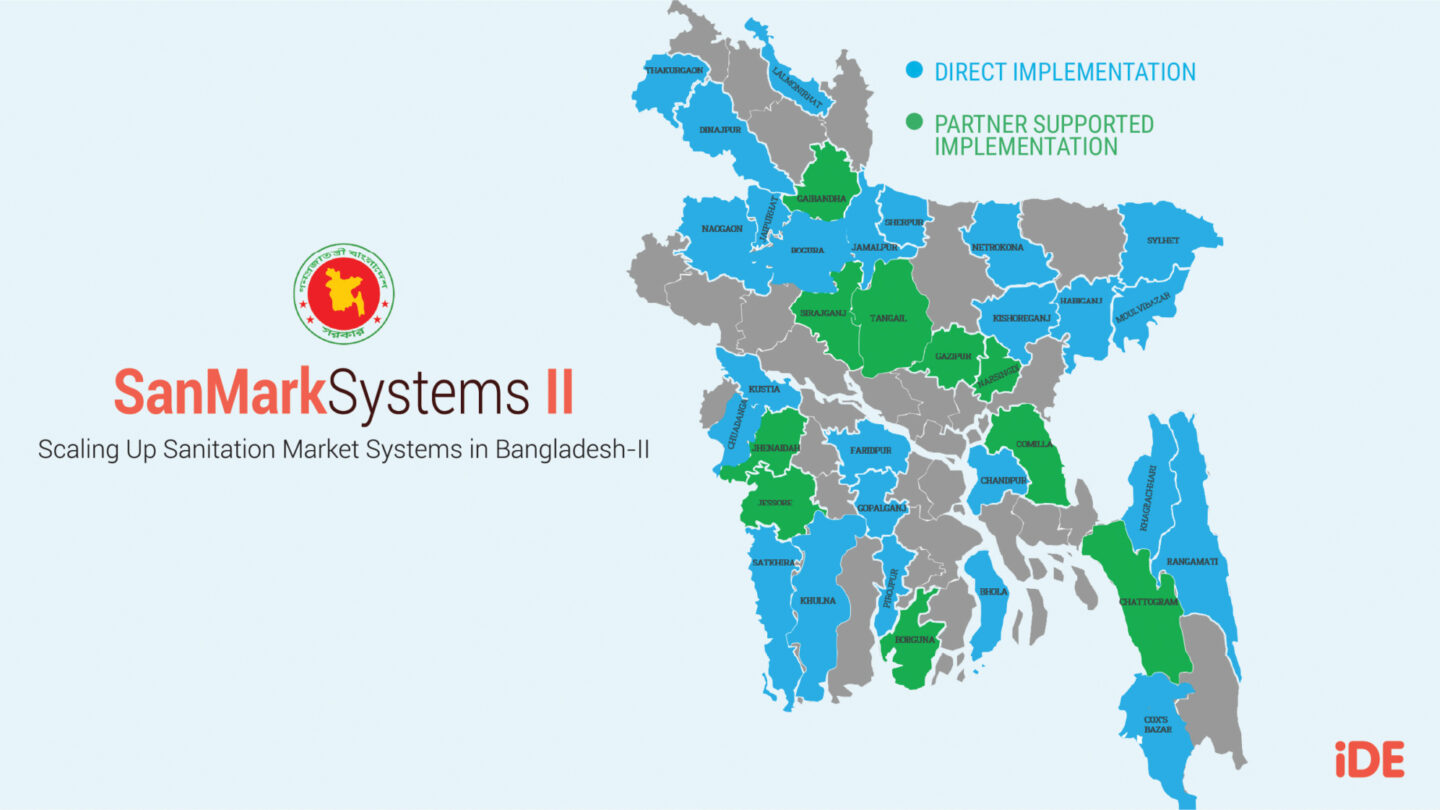
During the past 20 years, Bangladesh has made significant progress toward ending defecation by people out in the open. In 2000, according to JMP statistics, 21 percent of Bangladeshis in rural areas practiced open defecation. That figure dropped to zero by 2017. However, while locals have been pushed to abandon open defecation, many remain unaware of the importance of investing in improved sanitation facilities. As a result, more than 53 percent of rural Bangladeshis still don’t have access to high-quality, improved latrines that separate waste from the environment, and mitigate deadly water-borne diseases such as diarrhea and cholera, which can spread because of poor sanitation systems.
Part of Bangladesh’s success is the result of sustained efforts by the government and nonprofits to raise awareness about the dangers of open defecation and help create a market for affordable latrines. For example, SanMarkS II is the second phase of iDE’s sanitation work in Bangladesh, following a 5-year public-private development effort which led to 850,000 people in six districts gaining access to high-quality, improved sanitation facilities. Under SanMarkS, private-sector service providers were encouraged to make high-quality latrines for the lowest income and most marginalized Bangladeshi communities, which received targeted subsidies from the public sector.
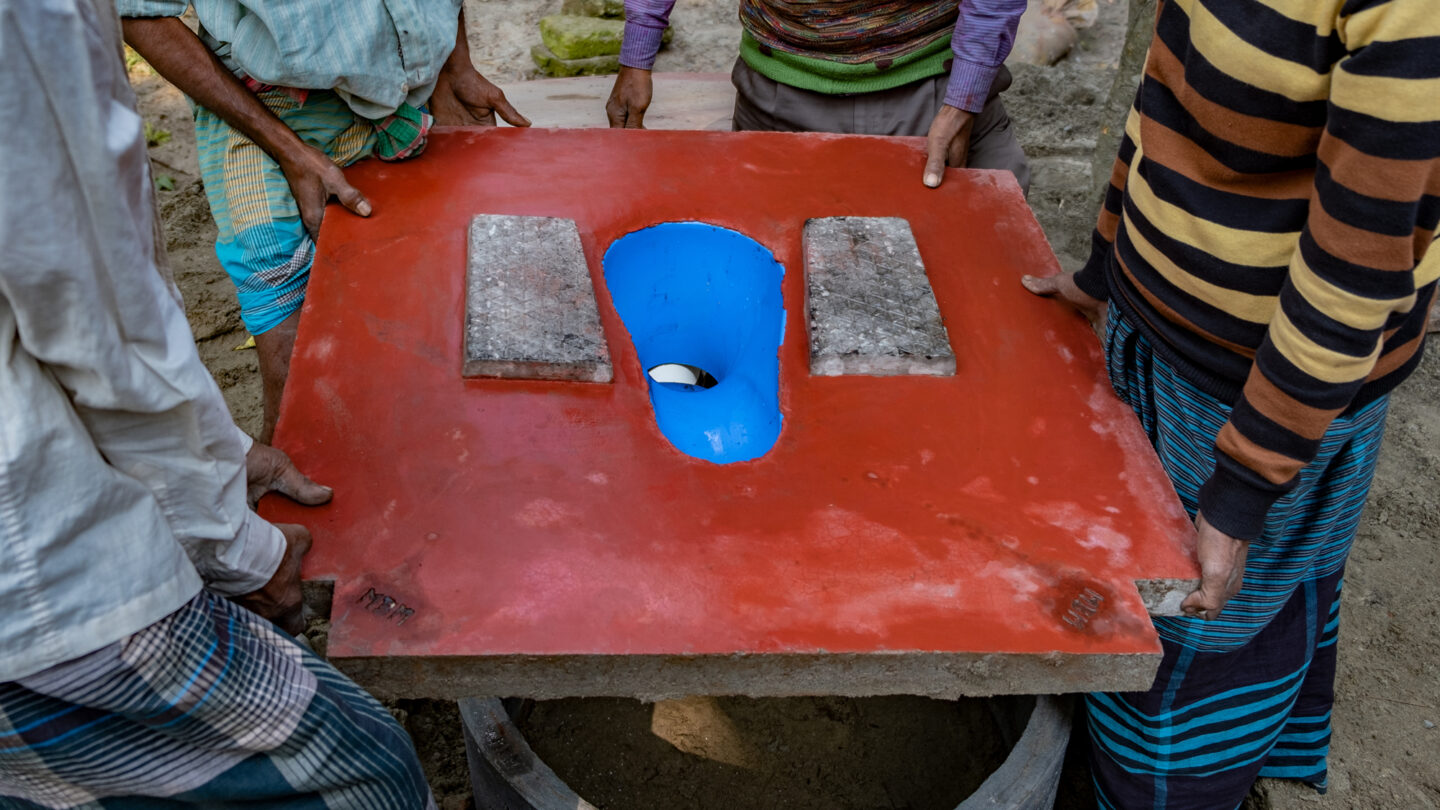
iDE is powering sanitation entrepreneurs by providing training on improved toilet manufacturing processes, supporting small business associations as well as training agents who go door-to-door selling the finished products.
SanMarkS II is a major, multi-year expansion of iDE’s sanitation work here, which is improving sanitation and hygiene behavior with group sales meetings, above the line campaigns and product demonstrations. The program is also strengthening WASH sector institutions by encouraging policy repositioning that supports market-based sanitation solutions, as well as providing targeted subsidies. Moreover, the program is powering sanitation entrepreneurs by providing training on improved toilet manufacturing processes, supporting small business associations as well as training agents who go door-to-door selling the finished products.
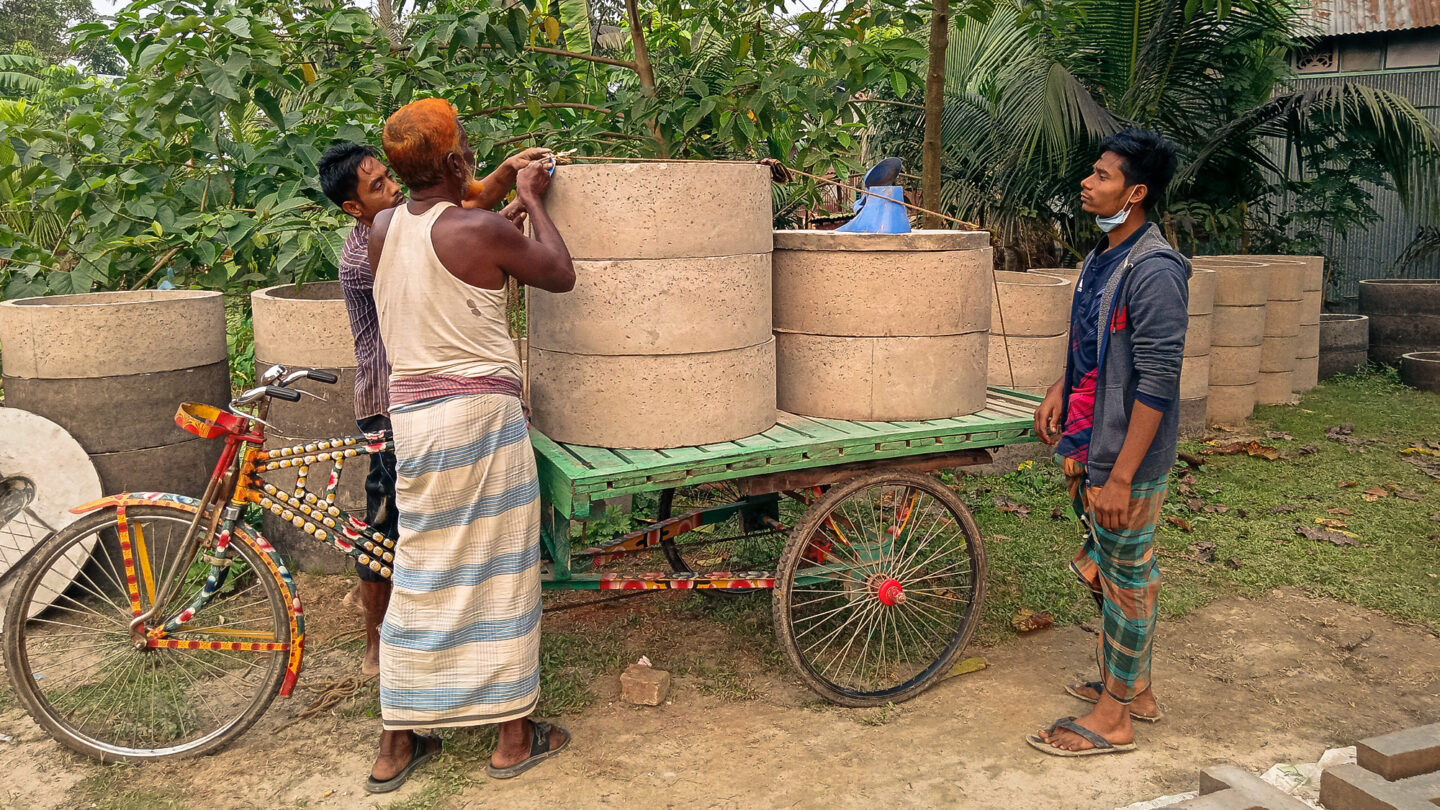
Mubeen, right, learned how to produce “improved latrines” which include cement rings, slabs, and lids, which he is now making at his small factory.
In Mubeen’s case, iDE invited him to participate in training sessions where program staff taught him about bookkeeping and examined his business model to see if it could be modified and refined. They also discussed challenges he faced recruiting workers, transporting raw materials, displaying, and selling products to the customers. With iDE’s facilitation, he expanded his product range to include pipes and ceramic pans. From the training, he also learned how to produce “improved latrines” which include cement rings, slabs, and lids, which he is now making at his small factory. “I have to reach potential customers with my products and services if I want to do business successfully.”
Saqif Nayeem Khan, SanMarkS II program manager, said the program was important because poor sanitation put people at risk of contracting diseases, and because a lack of improved sanitation could be a barrier to individual prosperity and sustainable development. He added that the program was reaching large numbers of people because latrine producers were being empowered with rapid, effective training, which was delivered in partnership with both the government and the private sector. “From our experience implementing the first phase of the program, we have figured out how to significantly scale our activities in a low cost way, setting up operations, playing a management role and effectively working with our partners, particularly in government,” says Khan.
